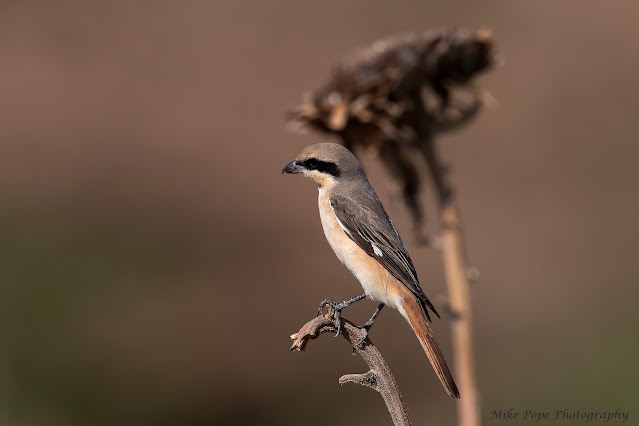Week 37; 12 September 2020 - Al Abraq
Following the productive morning at Abraq last weekend, I headed out to the farm in the early hours of the morning, to arrive at 6am and just after sunrise.
As I did last week, I spent the first hour at the pool just inside the gate in the golden morning glow, as birds (mostly Warblers) were pretty active and vocal.
Again, there were Barred Warbler
 |
| Barred Warbler (Curruca nisoria) |
Eastern Olivaceous; I did check closely for Blythe's - still no luck. These are two different birds below, the second being a younger bird
 |
| Eastern Olivaceous Warbler (Iduna pallida) |
Caspian Reed
 |
| Caspian Reed Warbler (Acrocephalus s. fuscus) |
A suspected Marsh
 |
| Possible Marsh Warbler (Acrocephalus palustris) |
Many Willow Warbler's
 |
| Willow Warbler (Phylloscopus trochilus) |
Common Whitethroat
 |
| Common Whitethroat (Curruca communis) |
and two bonus Yellow-throated Sparrow's
 |
| Yellow-throated Sparrow (Gymnoris xanthocollis) |
along with a lone Black-headed Bunting
 |
| Black-headed Bunting (Emberiza melanocephala) |
These were complimented by other birds in the habitat around the pool including; Oriole
 |
| Eurasian Golden Oriole (Oriolus oriolus) |
European Bee-eaters
 |
| European Bee-eater (Merops apiaster) |
Tree Pipit
 |
| Tree Pipit (Anthus trivialis) |
A European Nightjar, high up in a Tamarix Tree
 |
| European Nightjar (Caprimulgus europaeus) |
and my first Red-rumped Swallow for this autumn
 |
| Red-rumped Swallow (Cecropis daurica) |
I then took a drive around the farm, adding male and female Northern Wheatear's
 |
| Northern Wheatear (Oenanthe oenanthe) |
Lesser Short-toed Lark
 |
| Lesser Short-toed Lark (Alaudala rufescens) |
In the desert area, Great/Steppe Grey Shrike doing its Owl impersonation of rotating its head 180 degrees...
 |
| Great/Steppe Grey Shrike (Lanius excubitor lahtora) |
A Turkestan Shrike on one of the few remaining Sunflower stalks
 |
| Turkestan Shrike (Lanius phoenicuroides) |
We used to see really decent sized flocks of Ortolan Buntings on passage, but in recent years their numbers have drastically reduced as a result of the continued persecution of this species along the Flyway - really sad to bear witness to its slow demise
 |
| Ortolan Bunting (Emberiza hortulana) |
As the temperature rose, so did the appearance of Raptors which we have been eagerly anticipating (autumn is generally better than spring for raptors);
A single Black-winged Kite made an appearance
 |
| Black-winged Kite (Elanus c. vociferus) |
Followed by a Black-eared Kite passing overhead
 |
| Black-eared Kite (Milvus m. lineatus) |
Steppe Buzzard had roosted overnight, but a few others were seen later in the morning
 |
| Steppe Buzzard (Buteo b. vulpinus) |
And a few assorted Pallid Harriers, some of which stopped to rest in the shade.
 |
| Pallid Harrier (Circus macrourus) |
Overall, a pretty satisfying morning, if you can overlook the shooting....


















No comments:
Post a Comment